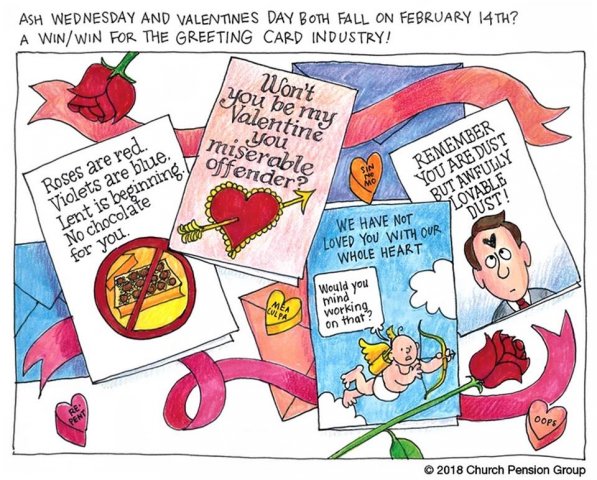Hezekiah Scovil Porter WW I Diary Transcription continued
The following is the next installment of the transcription of Hezekiah Scovil Porter’s diary of his time in the army until his death at Chateau Thierry on July 22, 1918. Again there is one from the beginning of the book and one from 100 years ago today.
Original is in black, annotations in red, horizontal lines indicate page breaks.
(At sea)
Tuesday, Oct. 16th
Very foggy. Boats going straight ahead today. No excitement.
(France)
Saturday Feb. 16th
Cold. Off guard at 4:30 this P.M. Appointed a driver again. The Company went to trenches tonight. Bob Skinner drove my car up.
Previous posts: Introduction, Part 1, Part 2, Part 3, Part 4, Part 5, Part 6, Part 7
Permalink | Read 2385 times | Comments (0)
Category Porter's Turn: [first] [previous] [next] [newest]
Hezekiah Scovil Porter WW I Diary Transcription continued
The following is the next installment of the transcription of Hezekiah Scovil Porter’s diary of his time in the army until his death at Chateau Thierry on July 22, 1918. Again there is one from the beginning of the book and one from 100 years ago today.
Original is in black, annotations in red, horizontal lines indicate page breaks.
(At sea)
Monday Oct. 15th
Fine day. On guard this A.M. No excitement.
(France)
Friday Feb. 15th
Gas drill + gun drill this A.M. Went on guard at 4:30 P.M. Cold tonight
Previous posts: Introduction, Part 1, Part 2, Part 3, Part 4, Part 5, Part 6
Permalink | Read 2252 times | Comments (0)
Category Porter's Turn: [first] [previous] [next] [newest]
Have a blessed Ash Wednesday and Valentine's Day. The Rev. Jay Sidebotham has appropriate greeting cards; take your pick.
Permalink | Read 2485 times | Comments (0)
Category Just for Fun: [first] [previous] [next] [newest]
Hezekiah Scovil Porter WW I Diary Transcription continued
The following is the next installment of the transcription of Hezekiah Scovil Porter’s diary of his time in the army until his death at Chateau Thierry on July 22, 1918. Again there is one from the beginning of the book and one from 100 years ago today.
Original is in black, annotations in red, horizontal lines indicate page breaks.
(At sea)
Sunday Oct. 14th
Fine day. Set sail this P.M. at 3:30. Nine ships with us. All going together.
(France)
Wednesday Feb. 14th
Gas drill + short hike this A.M. Drill with guns
this P.M.
Previous posts: Introduction, Part 1, Part 2, Part 3, Part 4, Part 5
Permalink | Read 2160 times | Comments (0)
Category Porter's Turn: [first] [previous] [next] [newest]
Hezekiah Scovil Porter WW I Diary Transcription continued
The following is the next installment of the transcription of Hezekiah Scovil Porter’s diary of his time in the army until his death at Chateau Thierry on July 22, 1918. Again there is one from the beginning of the book and one from 100 years ago today.
Original is in black, annotations in red, horizontal lines indicate page breaks.
(Canada, at sea)
Saturday Oct 13th
Felt fine this A.M. Pulled into Halifax about 9:30 A.M. Other transports besides ours loaded with American troops. Took on some Canadians. Loaded on provisions this P.M. Nothing doing this evening.
(France)
Wednesday Feb. 13th
Drill for gas this A.M. + with guns. Drill + short hike this P.M.
Previous posts: Introduction, Part 1, Part 2, Part 3, Part 4
Permalink | Read 2305 times | Comments (0)
Category Porter's Turn: [first] [previous] [next] [newest]
Hezekiah Scovil Porter WW I Diary Transcription continued
The following is the next installment of the transcription of Hezekiah Scovil Porter’s diary of his time in the army until his death at Chateau Thierry on July 22, 1918. Again there is one from the beginning of the book and one from 100 years ago today.
Original is in black, annotations in red, horizontal lines indicate page breaks.
(Canada, at sea)
Friday Oct 12th
Rough & rocking.
Everybody sea sick. Stayed up on deck nearly all day & tried to sleep when not sick. Didn’t eat all day.
(France)
Tuesday Feb. 12th
Fine day. Drill this A.M. Moved into different barracks this P.M. Saw a Boch airplane bring down an observation balloon.
Previous posts: Introduction, Part 1, Part 2, Part 3
Permalink | Read 2427 times | Comments (0)
Category Porter's Turn: [first] [previous] [next] [newest]
Hezekiah Scovil Porter WW I Diary Transcription continued
The following is the next installment of the transcription of Hezekiah Scovil Porter’s diary of his time in the army until his death at Chateau Thierry on July 22, 1918. Again there is one from the beginning of the book and one from 100 years ago today.
Original is in black, annotations in red, horizontal lines indicate page breaks.
(In Canada, on the St. Lawrence River)
Oct. 11th Thursday
Still going up river.
No excitement. Have to wear life belts at all times now. Felt as though had wash board around neck. Lots of snow on hills. Cold, getting rough to-night.
(In France)
Monday Feb. 11th
Fine Day. Went around town exploring trenches + dugouts.
Previous posts: Introduction, Part 1, Part 2
Permalink | Read 2405 times | Comments (0)
Category Porter's Turn: [first] [previous] [next] [newest]
Hezekiah Scovil Porter WW I Diary Transcription continued
The following is the next installment of the transcription of Hezekiah Scovil Porter’s diary of his time in the army until his death at Chateau Thierry on July 22, 1918. Again there is one from the beginning of the book and one from 100 years ago today.
Original is in black, annotations in red, horizontal lines indicate page breaks.
(Left Connecticut for Canada)
Oct. 10th Wednesday
Arrived at Montreal about 6 A.M. at docks. Boarded boat by 7:00 A.M. got 3rd class quarters – Rotten -. Set sail about 10 o’clock. Up St. Lawrence R. Pretty scenery. Poor grub. Arrived in Quebec about 8 P.M. Took on some Servians. (Servian is an archaic word for Serbian.) Saw rats around bunks when went to bed.
(Still in France)
Sunday Feb. 10th
Detrained at about 4 A.M. at Braisne. Unloaded our Fords etc. Had breakfast + started out in Flivers. Ate dinner at a town all shot to pieces. Continued in afternoon thru wrecked towns + landed at CheVregny. Town completely wrecked – not a house left. I Live in barracks – some in dugouts. Got a better sleep.
Previous posts: Introduction, Part 1
Permalink | Read 2279 times | Comments (0)
Category Porter's Turn: [first] [previous] [next] [newest]
This is the first of the actual entries from Hezekiah's diary. As a reminder, I (Porter) am posting two days of transcription each day, one for 100 years ago and one starting from October 9th (the beginning of the diary) and moving forward.
Hezekiah Scovil Porter WW I Diary Transcription
The following is the transcription of Hezekiah Scovil Porter’s diary of his time in the army until his death at Chateau Thierry on July 22, 1918.
Original is in black, annotations in red, horizontal lines indicate page breaks.
(Beginning pages)
H. S. Porter
101st Machine G. Bat. (Gun Battalion)
U.S.A.
(Places he went)
Niantic Conn.
Montreal, Canada
Halifax "
Liverpool, England
Borden "
Southampton "
Le Havre, France
Mont les Neufchateaux "
Lifol le Grand "
Vrigny "
Pinon "
Soissons "
Brienne le Chateau
Bar sur Aube
Fontaine Fr. (This seems out of place as it is in southwest France, near Grenoble; could it be Hontaine?)
Colomby "
Vignory "
St. Blin "
Menil la Tour "
St. Agnan "
Liouville " (It exists on Google, after you scroll down some from the famous person of the same name.)
Jouy " (Jouy is a commune in the Eure-et-Loir department in northern France)
Menil la Tour "
Bois de Hazelle
near Fleury (During the Battle of Verdun in 1916 Fleury was captured and recaptured by the Germans and French sixteen times. Since then, it has been unoccupied. During the war, the town was completely destroyed and the land was made uninhabitable to such an extent that a decision was made not to rebuild it. The area around the municipality was contaminated by corpses, explosives and poisonous gas, so no farmers could take up their work. The site of the commune is maintained as a testimony to war and is officially designated as a "village that died for France." It is managed by a municipal council of three members appointed by the prefect of the Meuse department.)
Foug "
Void "
Vitrey le François " (Vitry-le-François is a commune in the Marne department.)
Coulommes "
La Ferte " (La Ferté-sous-Jouarre is a commune in the Seine-et-Marne département in the Île-de-France region in north-central France. It is located at a crossing point over the River Marne between Meaux and Château-Thierry.)
Montreul ? (Could not find in Google)
Bejou ?
Belleau Woods (Actually spelled Belleau Wood)
(First entry)
(In Connecticut)
Oct. 9th 1917
Left camp at Niantic at about 8 A.M. Train late at station. Started about 10 A.M. Went north via Saybrook Junction. Through Hig. (Higganum, Connecticut) Lyndonville Vt. last town went through while awake. Good reception there.
(Skipping to 100 years ago today)
(In France)
Saturday Feb. 9th
Up at 3:30 A.M. Marched to station with junk & loaded it on cars. Were off after breakfast at 6:30 A.M. On box cars – 37 in ours. Some crowd. Rode all day. Slept but little
Previous posts: Introduction
Permalink | Read 2329 times | Comments (0)
Category Porter's Turn: [first] [next] [newest]
Hezekiah Scovil Porter was the youngest of Wallace and Florence Gesner (Wells) Porter's seven children, born into the tiny town of Higganum, Connecticut on June 4, 1896. He attended The Choate School in Wallingford, Connecticut. It is now known as the school that "has educated generations of the upper-class New England establishment and the American political elite," but at the time it was only as old as Hezekiah himself. Twenty years later, John F. Kennedy would graduate from Choate, having been chosen by his class as the person "most likely to succeed." About Hezekiah, the Headmaster wrote:
Hezzie was always a man of deeds rather than of words. And his influence either on the field, or in the classroom, or about School in general, was of the kind that very definitely made us a better School for his being part of it. In his Sixth Form year Hezzie was President of his class, and in the vote which was taken toward the close of the year, he was almost unanimously chosen as the member of his Form who had "done most for Choate." He was also voted—and there were no near competitors— the "most popular," as well as the man in his class "most to be admired."
But Hez never had his chance to become President. As with many of his generation, his service ended on the battlefields of France. After graduating from Choate, Hezekiah attended Yale University. But he left during the fall of his sophomore year to join the Army. After four months he was at the front, and five months later he was killed in action near Chatêau-Thierry.
The following quote, and the one above, are taken from Yale in the World War, by George Henry Nettleton (Yale University Press, New Haven, 1925). You can read a somewhat fuzzy but still legible copy of the article on Hezekiah Scovil Porter by clicking on the images in the middle of my Memorial Day, 2009 post.
On the morning of July 22, 1918, in the course of an American attack on Epieds, north of Château-Thierry, Hezekiah Scovil Porter, Private in the 101st Machine Gun Battalion, was killed in action. His diary closes abruptly with an entry recorded the night before while his company was awaiting the dawn which was to bring the expected advance. Next morning in the midst of the attack he met instant death in the open field as he was hurrying forward with ammunition for a machine gun.
Hezekiah Scovil Porter is my husband's granduncle. That diary the article mentions? Porter has it. That is the reason for this post and the ones that will follow. I will now step aside and let Porter take over.
One of my "95 by 65" goals is to transcribe Hezekiah's WW I diary. I knew he had died on July 22, 1918 - but I didn't remember when he had started the diary. Then I couldn't find the diary. I had moved it to a "safe place" after I had last looked at it. Finally, today, I found it again. It turns out he started the diary October 9th, 1917 - so I am four months late starting a "100 years ago today" transcription. Since that is the case I plan to have Linda put up two days of transcription each day, one for 100 years ago and one starting from October 9th and moving forward. I think this will work out such that the missed entries will be finished before July 22 comes. I hope this is of interest to all of you, and especially to my grandson Noah, who has Hezekiah's name as his middle name and also owns Hezekiah's schoolboy desk.
Thanks to Linda for "volunteering" to put this up on her blog.
Porter (Dad-o) Wightman, February 9, 2018.
A National Public Radio story reports that the 2020 U. S. Census will ask more detailed questions about race and ethnicity, as shown to the left on one of the possible new forms. (Click image to enlarge.)
I can appreciate not being labelled simply as "white" as if some races have further identities but white is simply white. However, it sure complicates filling out the form, and I have my doubts about how much useful information it will generate. I know more about my ancestry than most Americans, and I can't answer this question.
There simply is no room in those boxes to enter "English-German-Welsh-Irish-Scottish-French-Dutch." And if I manage to confirm the (currently quite speculative) Swiss branch, is that really Swiss, given that the family came to Switzerland from Germany? Is my French really French, given that it is actually Norman French, and the Normans were largely invading Vikings from Scandinavia? There's a good chance much of my English is also orignally Scandinavian—DNA testing suggests this as well—and my Scottish may have been originally Irish and vice versa.
Given that my most recent immigrant ancestors came to this country in the 1700's, I think I'll fill in the blank with "American" and let the chips fall where they may. But I've only learned this information recently, after years of research. That kind of research is even more difficult for African-Americans, thanks to slavery and the "1870's wall," but at least the census offers "African American" as a choice—which just happens to fit exactly into the boxes allowed. I suppose I could try "European American"—but that won't fit.
How many Americans know their ancestry further back than their grandparents, anyway?
There's going to be a lot of guesswork going on.
TODAY, Februay 7, you can get the first two Green Ember books in Kindle format for FREE. Enjoy!
Permalink | Read 2062 times | Comments (0)
Category Reviews: [first] [previous] [next] [newest] Education: [first] [previous] [next] [newest] Children & Family Issues: [first] [previous] [next] [newest] Everyday Life: [first] [previous] [next] [newest]
When we visited Switzerland for Christmas, I thought our biggest gift was the Hot Wheels Ultimate Garage, which barely qualified as half of our checked baggage allowance.
That gift did indeed make quite an impression on our young grandchildren, but I'm beginning to wonder if we didn't also bring a gift of more widespread impact: Florida weather.
While we were there, Switzerland enjoyed its warmest January on record.
Meanwhile, Florida was experiencing weather that looked more Alpine: snow in Tallahassee, freezes in Central Florida. There were days when it was significantly warmer in Lucerne than in Orlando.
And that's not all. On January 3, a storm, named Burglind, brought Florida-style hurricane-force winds to Switzerland, wreaking havoc across the country and blowing away previous records. Winds of over 120 miles per hour were measured on Lucerne's Mount Pilatus. That's a high Category 3 hurricane if you live in Florida.
Now that we're home, the weather appears to have stablilized in both places.
The conclusion is obvious: It is we, not George Bush or Donald Trump, who are causing climate change.
Is anyone interested in providing us an all-expenses-paid vacation to somewhere up north? Buffalo, New York? Minneapolis, Minnesota? Hillsboro, New Hampshire?
Permalink | Read 1757 times | Comments (4)
Category Just for Fun: [first] [previous] [next] [newest]
 Everywhere I go, I leave part of my heart behind. Every place I've lived is dear to me, every place our children have lived, many places I have visited. I live in Florida, but there's a bit of "home" scattered all over the world.
Everywhere I go, I leave part of my heart behind. Every place I've lived is dear to me, every place our children have lived, many places I have visited. I live in Florida, but there's a bit of "home" scattered all over the world.
The High Peak Region of New York's Adirondack Mountains holds one of the deepest and dearest places in my heart, though I never lived there and have no family near there anymore. Early memories are strong.
Hiking in the Adirondacks was one of my father's favorite pasttimes when he worked for the General Electric Company in Schenectady, New York. He often went with his colleagues from work—Ted Dietze, Howard Kasch, and Gabe Kron come to mind—and once marriage and children entered the picture, we were swirled into the mix. Some of my best memories have the Adirondack Mountains stamped indelibly upon them.
Hence my excitement when a Facebook friend posted this trailer about an upcoming film, Heaven on Earth: The Adirondacks. Following the link led me to realize that the film is being made by renowned nature photographer Joe LeFevre, one of whose Adirondack photographs graces our wall, thanks to a mutual friend.
Well, grrrr. The two ways I know to embed a video in my blog have failed me. What works for YouTube should also work for Vimeo, but I can't make it do so and am out of time at the moment. But the links work.
Heaven on Earth: The Adirondacks (official trailer).
The trailer itself is beautiful; the whole film will be stunning, I'm sure.
What I'm not so sure about is how great an idea it is to give the Adirondacks more publicity. Even 50 years ago the mountains were having a hard time dealing with the tramp of so many tourist feet, and I understand that hikers are no longer able to enjoy what I consider to be one of the best parts of hiking there, second only to the views. We always brought canteens of water with us, but once we were up on the mountain took the earliest opportunity to dump the contents and fill up with water from the mountain streams—the very best water I've ever tasted. Maybe I miss that even more than the scenery, since photography can capture something of the latter.
Well, even though you can't taste the water, be sure to take three minutes and taste LeFevre's artwork.
Permalink | Read 1872 times | Comments (1)
Category Random Musings: [first] [previous] [next] [newest]
It was an irresistable headline: Nutritionist claims pizza can be a healthier breakfast than cereal.
I love breakfast. I could eat it for breakfast, lunch, and dinner. My current favorite morning meal is a large bowl of steaming oatmeal with dried fruit, though that may change with the weather.
Make that second-favorite. Pizza is always at the top of the list.
Blogger and dietitian Chelsey Amer caused a stir when [she announced] that a greasy slice of pizza is healthier than a bowl of cereal with milk. "You may be surprised to find out that an average slice of pizza and a bowl of cereal with whole milk contain nearly the same amount of calories,” Amer said. “However, pizza packs a much larger protein punch, which will keep you full and boost satiety throughout the morning."
Not that this is news to me, though it's nice to hear a nutritionist say it. The writer of the article, however, is less than enthusiastic, and spends most of his effort convincing us of ways to make cereal healthier.
New York-based dietitian Keri Gans says that cereal can be a perfectly healthy breakfast option — yes, healthier than pizza — as long as you’re smart about it. ... "If you choose the right cereal that’s packed with fiber, it may help lower cholesterol and control blood sugar. ... You could top your cereal with berries, which are rich in vitamins. ... you [can] work plenty of nutrition into your bowl — far more than you’d find on a dollar slice."
Well, sure, if you want to load the equation in favor of cereal. But you can do the same thing for the pizza. Skip the fast food version. Homemade pizza, whole-grain crust, good tomato sauce and cheese, lots of veggies.... But don't forget the pepperoni, if—like me—you consider it nearly essential to good pizza. Don't skimp on flavor, or it won't be satisfying and you'll eat more.






